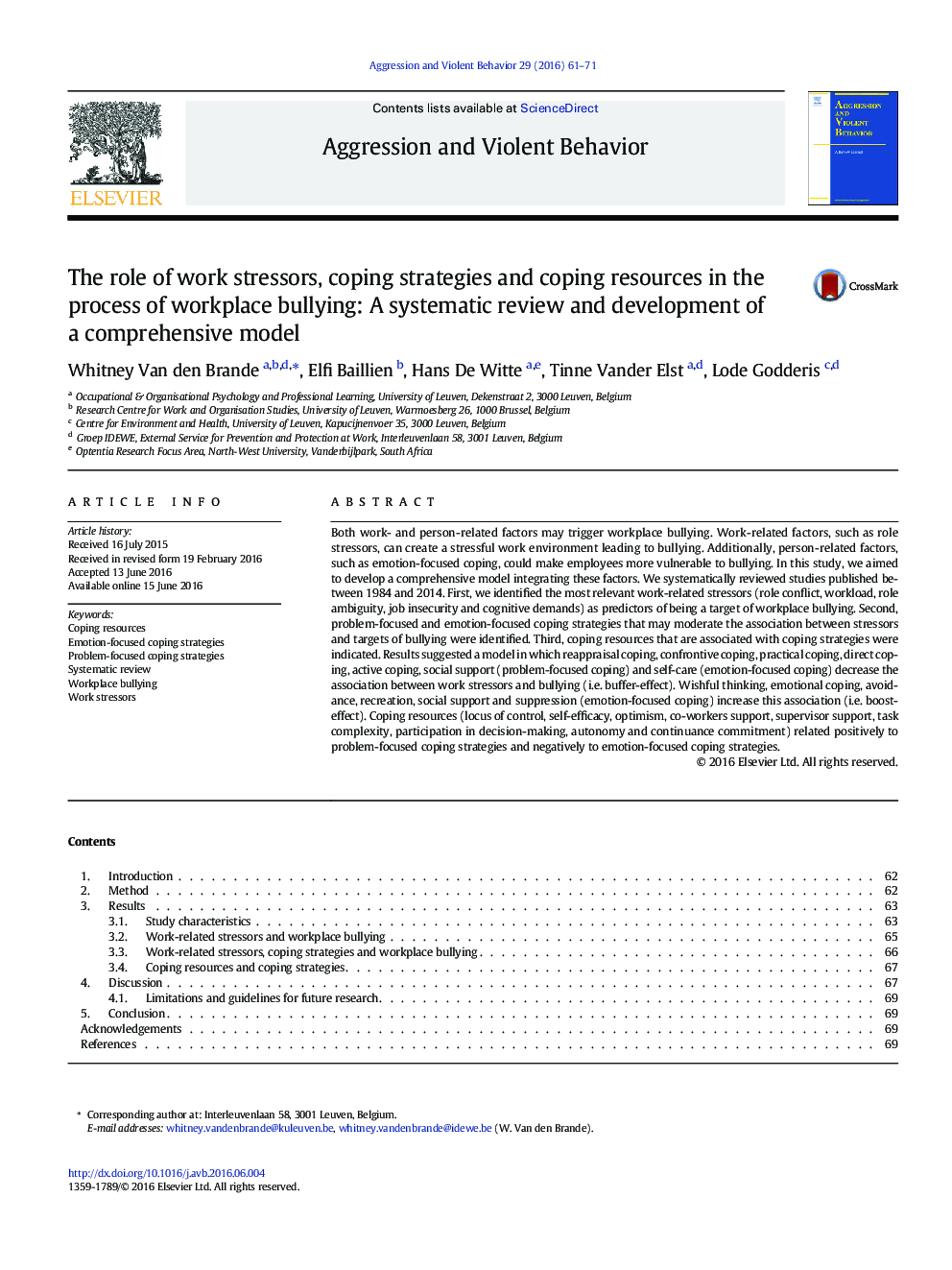| کد مقاله | کد نشریه | سال انتشار | مقاله انگلیسی | نسخه تمام متن |
|---|---|---|---|---|
| 94436 | 160295 | 2016 | 11 صفحه PDF | دانلود رایگان |
• About the interaction between work stressors and coping in the bullying process
• Systematic review for the development of a comprehensive model
• Recommendations for future research on workplace bullying
Both work- and person-related factors may trigger workplace bullying. Work-related factors, such as role stressors, can create a stressful work environment leading to bullying. Additionally, person-related factors, such as emotion-focused coping, could make employees more vulnerable to bullying. In this study, we aimed to develop a comprehensive model integrating these factors. We systematically reviewed studies published between 1984 and 2014. First, we identified the most relevant work-related stressors (role conflict, workload, role ambiguity, job insecurity and cognitive demands) as predictors of being a target of workplace bullying. Second, problem-focused and emotion-focused coping strategies that may moderate the association between stressors and targets of bullying were identified. Third, coping resources that are associated with coping strategies were indicated. Results suggested a model in which reappraisal coping, confrontive coping, practical coping, direct coping, active coping, social support (problem-focused coping) and self-care (emotion-focused coping) decrease the association between work stressors and bullying (i.e. buffer-effect). Wishful thinking, emotional coping, avoidance, recreation, social support and suppression (emotion-focused coping) increase this association (i.e. boost-effect). Coping resources (locus of control, self-efficacy, optimism, co-workers support, supervisor support, task complexity, participation in decision-making, autonomy and continuance commitment) related positively to problem-focused coping strategies and negatively to emotion-focused coping strategies.
Journal: Aggression and Violent Behavior - Volume 29, July–August 2016, Pages 61–71
